Programme
Pub quiz
Why not join us for our annual pre-conference Pub Quiz if you are attending the conference in person? This is the perfect chance to have a taste of our well-loved British pub culture and what could be more 'Oxford' than doing a quiz for fun! Whether you've been before or it's your first time, this is a great chance to meet (& compete with) fellow attendees & our GO Lab team. All are welcome! The Pub Quiz will be at 6pm Wednesday 3rd of September at the Oxford Retreat.
Photography and Video
Some sessions of the Social Outcomes Conference that are available to join online will be recorded, and the recordings will be shared after the session. These sessions are indicated in the programme with ‘join online’ instructions. By joining a session online, you consent to these conditions.
For in-person attendees, there will be photographers taking pictures and filming during both days of the conference. You may ask the photographer not to take your picture if you would prefer not to be photographed. You can also write to golab@bsg.ox.ac.uk about this and we will help you.
This may also be an issue as individuals take photos with their camera phones for social media purposes. Please speak up if you have concerns. Finally, if you would prefer not to be filmed by the videographer, you can do one or both of these things: sit at the conference in a place where the video camera is pointing at your back, and/or sit in the seats near the video camera so that it will not capture your image.
Registration opens
In-person participants will be able to register at the reception of the Blavatnik School of Government and enjoy tea, coffee and pastries with other in-person attendees and speakers.
Official SOC25 photograph
If you're attending SOC25 in person join us in the Inamori Forum for the official SOC25 photograph.
Welcome to the Social Outcomes Conference 2025
The Government Outcomes Lab's leadership team will welcome online and in-person participants to this year's conference.
Find a recording of the event here.
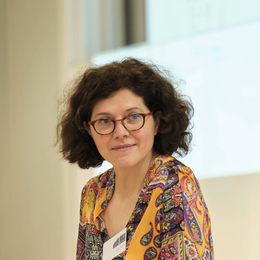
Dr Mara Airoldi
University of Oxford

Dr Eleanor Carter
University of Oxford

Andreea Anastasiu
University of Oxford
Keynote discussion by Professor Mario Calderini
Turning Pressure into Progress: Unlocking the Next Chapter of the Impact Economy
As governments face mounting fiscal constraints, the imperative to deliver public value through innovative, collaborative, and outcomes-driven approaches has never been stronger. This keynote will reflect on 15 years of experience in the impact economy—drawing on real-world practice as well as research into innovation and the dynamics of how impactful ideas spread. By examining what has worked, what hasn’t, and why, the session will offer fresh insights for cross-sector leaders—governments, impact investors, and not-for-profits—working together to scale solutions in complex, resource-limited environments.
A panel of distinguished leaders will respond with perspectives from the frontline of delivering social impact. Drawing on deep experience in public service delivery, applied research, innovation practice, and philanthropic investment, the panel will ground the keynote themes in real-world contexts. Their insights will highlight both the opportunities and tensions of working across sectors to achieve measurable outcomes, offering practical reflections on what it takes to drive change at scale in today’s complex and resource-constrained landscape.
Find a recording of the event here.

Mario Calderini
Politecnico di Milano School of Management
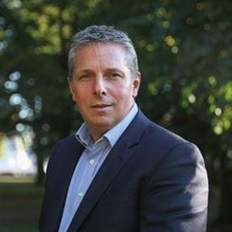
Richard Hawkes
British Asian Trust

S.D. Shibulal
ShikshaLokam

Deanna Malatesta
Indiana University

Louisa Mitchell MBE
AllChild

Dr Mara Airoldi
University of Oxford
Chair
Social Outcomes Partnerships in the UK: Learning and evidence from the two largest outcomes funds in the UK
Join us for this spotlight session: a new format we are introducing at the conference this year for the first time! Spotlight sessions offer 45 minutes of deeper exploration into an innovative research or practice-based case studies. Each session begins with a focused presentation, followed by an interactive audience-driven discussion that dives into questions and details around the featured work. These are in-person only sessions to ensure a high level of engagement with participants.
Participants should come ready with their questions as we delve into our case study exploring the two largest outcomes funds from the UK: the Life Chances Fund and the Commissioning Better Outcomes Fund.

Andreea Anastasiu
University of Oxford

Neil Stanworth
ATQ Consultants
Nurturing ecosystems for outcomes-based partnerships: examples from across Latin America
Join us for this spotlight session: a new format we are introducing at the conference this year for the first time! Spotlight sessions offer 45 minutes of deeper exploration into an innovative research or practice-based case studies. Each session begins with a focused presentation, followed by an interactive audience-driven discussion that dives into questions and details around the featured work. These are in-person only sessions to ensure a high level of engagement with participants.
Participants should come ready with their questions as we delve into our case study from Latin America on nurturing ecosystems for outcomes-based partnerships.

Flavia Tinelli
Acrux Partners

Siegrid Holler
Instiglio
Lessons from the world's first development impact bond for adolescent sexual and reproductive health in Kenya
Join us for this spotlight session: a new format we are introducing at the conference this year for the first time! Spotlight sessions offer 45 minutes of deeper exploration into an innovative research or practice-based case studies. Each session begins with a focused presentation, followed by an interactive audience-driven discussion that dives into questions and details around the featured work. These are in-person only sessions to ensure a high level of engagement with participants.
Participants should come ready with their questions as we delve into our case study from the world's first development impact bond for adolescent sexual and reproductive health in Kenya.

Benoit Renard
Tiko
Establishing a Swedish outcome lab – national support function and outcomes financing
Join us for this spotlight session: a new format we are introducing at the conference this year for the first time! Spotlight sessions offer 45 minutes of deeper exploration into an innovative research or practice-based case studies. Each session begins with a focused presentation, followed by an interactive audience-driven discussion that dives into questions and details around the featured work. These are in-person only sessions to ensure a high level of engagement with participants.
Participants should come ready with their questions as we delve into our case study from Sweden: establishing a Swedish outcome lab - national support function and outcomes financing.
Presentations
Chaired by the Public Health Agency of Sweden
In this session we invite you to a dialogue on key components to build a long term national Swedish support system to …

Anna Balkfors
Public Health Agency

Nina Lindqvist
Public Health Agency
A framework for capturing transaction costs in Social Outcomes Partnerships: Insights from the evaluation of the Mental Health & Employment Partnerships
Join us for this spotlight session: a new format we are introducing at the conference this year for the first time! Spotlight sessions offer 45 minutes of deeper exploration into an innovative research or practice-based case studies. Each session begins with a focused presentation, followed by an interactive audience-driven discussion that dives into questions and details around the featured work. These are in-person only sessions to ensure a high level of engagement with participants.
Participants should come ready with their questions as we delve into our case study on a framework for capturing transaction costs, drawing insights from the Mental Health and Employment Partnership SOPs.

Emily Hulse
University of Oxford
Strengthening grassroots collective action for education in India
Join us for this spotlight session: a new format we are introducing at the conference this year for the first time! Spotlight sessions offer 45 minutes of deeper exploration into an innovative research or practice-based case studies. Each session begins with a focused presentation, followed by an interactive audience-driven discussion that dives into questions and details around the featured work. These are in-person only sessions to ensure a high level of engagement with participants.
Participants should come ready with their questions as we delve into our case study from India on strengthening grassroots collective action for education.

Dr Harry Bregazzi
University of Oxford

Neeraj Doddamane
ShikshaLokam

Kumari Shibulal
Shibulal Family Philanthropic Initiatives
Cash with purpose: How cash-first models are changing local support
Do traditional grant-making models still work or is it time for something new?
This session spotlights two pilots putting "cash-first" ideas into action: Camden Council’s early years programme, offering unconditional payments to new parents with optional Family Hub support, and Greater Change’s personal grants, helping people move from homelessness to lasting stability.
We’ll explore why these approaches are gaining traction, how they differ from conventional funding, and what it takes to deliver them well.

Jonathan Tan
Greater Change

Dr Jun Nakagawa
Camden Council

Benny Souto
Camden Council

Habiba Hussain
Camden Council
Leveraging technology and machine learning for better impact measurement
Join us for this spotlight session: a new format we are introducing at the conference this year for the first time! Spotlight sessions offer 45 minutes of deeper exploration into an innovative research or practice-based case studies. Each session begins with a focused presentation, followed by an interactive audience-driven discussion that dives into questions and details around the featured work. These are in-person only sessions to ensure a high level of engagement with participants.
Participants should come ready with their questions as we delve into our case study on leveraging technology and machine learning for better impact measurement, taking lessons from an impact bond helping refugees and their host communities in Jordan and Lebanon.
Presentations
In 2021, the Near East Foundation (NEF) launched a development impact bond (DIB) to help refugees and their host communities in Jordan and Lebanon recover their livelihoods and build their …

Nicolas Baumgartner
Near East Foundation

Dalal Masalha
Near East Foundation
Capital for change: the investor role in social outcomes contracts
As impact investing continues to gain global traction, and aligning private capital with public good continues to grow, social outcomes contracts are gaining renewed attention as a way to finance measurable impact. But what draws investors to this model? What makes it work in practice? And what needs to shift to unlock greater investment at scale?
This interactive workshop, hosted in partnership with Better Society Capital, brings together investor perspectives from both the UK and Sweden to explore the fundamentals of investing in social outcomes. Together, in this dynamic workshop, we’ll examine how social outcomes finance is evolving, what makes it attractive to mission-driven investors, and how to strengthen the ecosystem across borders.
The workshop is especially ideal for private sector actors, investors, philanthropies, and foundations – from those new to outcomes-based commissioning all the way to seasoned practitioners with insights to share.
Find a recording of the event here.

Dr Eleanor Carter
University of Oxford
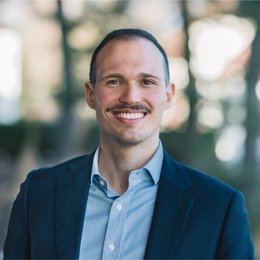
Gabriele Guaita
UBS Optimus Foundation

Richard Hawkes
British Asian Trust

Jessica Reedy
University of Oxford
Chair
Presentations
We believe that we have valuable insights to share, when it comes to adapting the SOC model to the context of welfare states. Contrary to the UK, where charities and …

Joachim Werr
Utfallsfonden
Given the announcement of the Social Impact Investment Vehicle by His Majesty's Treasury what role do investors play in building a stable ecosystem of social outcomes contracts. Why are investors …

Aman Johal
BSC
Prototyping the Future of Complex Public Service Contracts: Testing, Learning, and Scaling Formal-Relational Approaches
At SOC24, participants helped us take the first step: identifying what gets in the way of contracting for complex public services - and what might make it better. Building on those early insights, we convened a series of follow-on workshops with commissioners, lawyers, and practitioners to co-develop a prototype formal-relational contract model for public services.
Now, at SOC25, we’re coming full circle. This workshop will introduce the draft model, invite feedback, and road-test its core components. Together, we’ll explore how this approach might translate to other sectors and service areas, laying the groundwork for broader application and impact.
Find a recording of the event here.

Liam Sloan
Public Digital
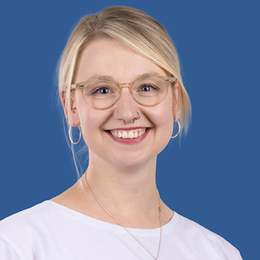
Connie van Zanten
Public Digital

Cate McLaurin
Public Digital

Dr Felix-Anselm van Lier
University of Oxford
Chair

Michael Gibson
University of Oxford
Chair
Outcomes-focused partnerships: Exploring pathways for impact at scale
Achieving impact at scale has long been the holy grail for those leading outcomes-focused partnerships. While the challenges are well-documented, recent practice suggests progress is being made partnerships are increasingly designed with scale and sustainability built in from the start, alongside a greater recognition that pathways to impact vary widely based on context.
There isn’t a single blueprint. Some approaches focus on expanding and mainstreaming these models, while others involve adoption of innovative service delivery models at the national level, new ways of working within local ecosystems of service, or a different approach to how central government works with local communities to balance accountability and flexibility. Regardless of the approach, accelerating progress requires collective learning, open dialogue and honest reflection on the barriers to scale.
This interactive session will bring together experienced researchers, delivery organisations, policymakers, and technical advisors, and intermediaries to explore different pathways for impact at scale in outcomes-based partnerships. We’ll blend research and practical insights to examine the strategies that different organisations have pursued to grow their impact. The discussion will kick off with real-world examples that showcase the diversity of approaches, before inviting participants to share their experiences and collaboratively sketch roadmaps to greater impact

James Magowan
CSY Directorate, DCMS

Andreea Anastasiu
University of Oxford
Chair

Louise Savell
Social Finance
Chair
Presentations
We argue that for SIBs to realise their full potential as incubators of innovation and to deliver their outcomes, they need to incorporate a stronger element of co-production and relational …

Lee Whitehead
Manchester Metropolitan University
Outcomes-based contracting has the potential to transform service delivery by aligning funding with measurable impact and facilitating local partnerships with grassroots organzations who are often the most effective at delivering …

Caroline Bernadi
Village Enterprise
Since their establishment over a decade ago, considerable research has been done on Social Impact Bonds (SIBs). Nonetheless, many questions remain on their ability to meet their high expectations, including …

Hilary Olson
Research consultant
Save the Children aims to place greater emphasis on the effectiveness and cost-effectiveness of interventions. In the education sector, this includes collaborating, since 2021, with the Education Outcomes Fund on …

Richard Germond
Save the Children UK
Current times call for bravery, new thinking and letting go of old ways of deciding and doing. This workshop will look at whether and how outcomes-based approaches could shift power …

Louise Savell
Social Finance
We are faced with new challenges and our institutions are not well equipped to solve those. UN Secretary-General António Guterres described this well in his address to the General Assembly …

Mila Lukic
Bridges Outcomes Partnerships
The Skill Mill emerged from within the youth justice sector 11 years ago as a pioneering social enterprise, seeking to reducing reoffending and provide meaningful employment opportunities for young people …
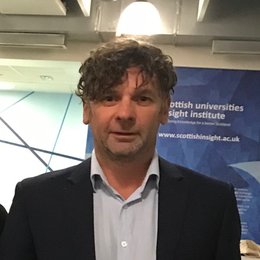
David Parks OBE
The Skill Mill
From reporting to value creation: impact measurement as a strategic tool in social outcome projects
This interactive session explores impact measurement as a management tool within social outcome projects. Through the presentation of selected contributions, we will discuss how impact measurement can create value by facilitating mutual learning among stakeholders, enhancing governance practices, and informing the design of interventions. The session offers a critical reflection on the strategic role of evaluation in advancing social outcome projects

Dr Mara Airoldi
University of Oxford

Dayoung Lee
Dalberg Advisors

Tommaso Tropeano
Politecnico di Milano
Chair

Enrico Bellazzecca
Politecnico di Milano
Chair
Presentations
A key structural challenge in social services is the imbalance of power between funders (often governments) and the social service organisations who deliver the services. Part of this structural imbalance …

Dale Renner
Latitude Network
The challenge
Place-based systems change programmes are vital to addressing complex issues like deprivation, homelessness, education or youth safety. Yet many people have told us they struggle to conclusively prove …
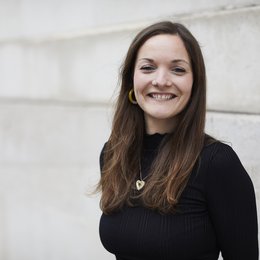
Lily O'Flynn
Renaisi
Evaluating the impact of national, preventative missions that require systemic action is notoriously hard to do. In this paper we share learning from our work taking an embedded approach to …

Dr Ailsa Cook
Matter of Focus
Background and objective:
DIBs have typically focused on direct service delivery and are seen as difficult to apply to systems strengthening initiatives due to the complexity of defining, quantifying, measuring, …

Shraddha Iyer
British Asian Trust
Enumerators (or field officers) are essential to the production of evidence on which outcomes-based decision-making rests. They collect data that is subsequently analysed by project managers and (hopefully) ends up …
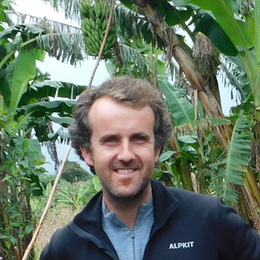
Ben Eyre
UEA
"Imagine you're a mainstream investor. You wake up, have your coffee, and you’re ready to act: Bloomberg shows you the markets, Pitchbook gives you the latest deals, Dealroom tracks …

Giulio Pasi
European Commission
Delivery beyond deliverables: what does it take to put meaningful outcomes at the heart of public services?
GO Lab’s pioneering evaluation of the Life Chances Fund, a £70m programme funded by the UK government, highlights how outcomes-focused partnerships can lead to more adaptive, accountable and person-centred public services. But purposeful and impactful partnerships aren’t forged by themselves – they require government at multiple levels to be deliberate in curating an enabling environment for a fundamentally new way to manage public services.
In this session we will bring together experienced scholar and government perspectives from across the globe to explore the conditions that are required to put meaningful outcomes at the heart of our public services. We will look beyond the technical conditions, to explore how courageous leadership at local level, a culture of empowerment rather than compliance, and a broader understanding of public value can lead to better outcomes for our communities. We will hear examples of how these enabling conditions look like on the ground and discuss the challenges of these ways of working
Find a recording of the event here.

Dr Eleanor Carter
University of Oxford

Dr Dan Honig
UCL and Georgetown University

Nick Joicey
University of Oxford
Chair
Presentations
This paper presents a series of actions implemented by the Government of the State of Rio de Janeiro to enhance the flexibility of resource allocation and revert unused balances from …

Bruno Schettini
São Paulo Securitization Company
The Presidential Youth Employment Intervention (PYEI) is South Africa's most comprehensive effort yet to address this crisis. Its goal is to transition young people successfully from learning to earning. To …

Tshego Walker
Presidential Youth Employment Intervention (PYEI)
Networking dinner
Oxford landmarks morning run
Stay active during the conference and discover some of Oxford's most iconic landmarks by joining us on an easy morning run. We will be starting the run promptly at 7am outside the Radcliffe Camera, in the very heart of Oxford.

Andreea Anastasiu
University of Oxford

Dr Jonathan Davies
University of Oxford
Registration opens
In-person participants will be able to register at the reception of the Blavatnik School of Government building before joining our Croissants and Collaborations for tea, coffee and pastries with other in-person attendees and speakers.
Regulatory frameworks for outcomes-focused partnerships
Back by popular demand and now officially part of the main programme, these sessions will last 90 minutes, and are designed to connect experts around a specific challenge or question that they can solve (or seek to make progress on) together. With croissants in hand, participants are invited to contribute their expertise and ideas in a relaxed, conversational setting.
Attendees should come ready to join together in this session to discuss how we can build regulatory frameworks for outcomes-focused partnerships.

David Hunter
Global Alliance of Impact Lawyers

Siegrid Holler
Instiglio
Nurturing social outcomes markets
As outcomes become tradable, how do we build systems that ensure trust, legitimacy and a market-based mechanism that truly drives human and societal flourishing? This session brings together leading voices to explore the future of verified outcomes, from the risks and tensions to the opportunities for scale. Join us for a grounded conversation on what it will take to move from bespoke contracts to an outcomes marketplace.
- With public funding stretched, corporates under pressure, and philanthropy seeking increased accountability and effectiveness, the time is ripe to rethink how we connect verified impact to capital.
- Building on emerging frameworks like the World Economic Forum’s tradeable impact initiative, and early infrastructure and standards being tested by pioneers like Common Good Marketplace and WOCAN’s W+ credits, this session explores what’s needed for real adoption.
- Expect a provocative, participatory format designed to surface real tensions and leave participants with a clearer understanding of how they can engage with — and help shape — the future of verified outcomes.

Cooper Renfro
Social Finance

Matheus Chacur
Common Good Marketplace
Making theoretical savings real: The case for building preventative spending into budget rules
Back by popular demand and now officially part of the main programme, these sessions will last 90 minutes, and are designed to connect experts around a specific challenge or question that they can solve (or seek to make progress on) together. With croissants in hand, participants are invited to contribute their expertise and ideas in a relaxed, conversational setting.
Attendees should come ready to join together in this session to discuss how we can build preventative spending into budget rules and how to take more preventative approaches.

Dr Cressida Gaukroger
Independent researcher

Dr Elaine De Gruyter
University of Oxford

Bruno Schettini
São Paulo Securitization Company

Jeffrey Matsu
CIPFA
How can we create a health system with a focus on outcomes?
Back by popular demand and now officially part of the main programme, these sessions will last 90 minutes, and are designed to connect experts around a specific challenge or question that they can solve (or seek to make progress on) together. With croissants in hand, participants are invited to contribute their expertise and ideas in a relaxed, conversational setting.
Attendees should come ready to join together in this session to discuss how we can create a health system with a focus on outcomes.

Ruben Koekoek
Social Finance NL

Jake Segal
Social Finance
Connecting the local with impact at scale
Back by popular demand and now officially part of the main programme, these sessions will last 90 minutes, and are designed to connect experts around a specific challenge or question that they can solve (or seek to make progress on) together. With croissants in hand, participants are invited to contribute their expertise and ideas in a relaxed, conversational setting.
Attendees should come ready to join together in this session to discuss how we can help better connect the local with impact at scale.

Dr Benedetta Trivellato
University of Milano-Bicocca
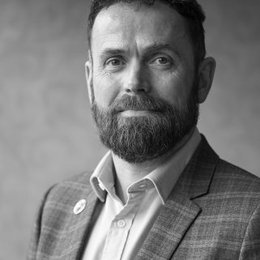
Ian Morris
Peterlee Town Council

Jessica Reedy
University of Oxford

Sanjana Haribhakti
British Asian Trust

Miléna Castellnou
Education Outcomes Fund

Dr. Pratibha Narayanan
Involve Learning Solutions Foundation
From learning to legacy: Practical lessons from UK outcomes funds
Back by popular demand and now officially part of the main programme, these sessions will last 90 minutes, and are designed to connect experts around a specific challenge or question that they can solve (or seek to make progress on) together. With croissants in hand, participants are invited to contribute their expertise and ideas in a relaxed, conversational setting.
This session is perfect for anyone working in or with social outcomes partnerships who wants to explore how learning from the Life Chances Fund is influencing new programmes and systems, share experiences from their own work, and tackle the challenges of making outcomes-based approaches stick.

Dr Jonathan Davies
University of Oxford

Maria Patouna
University of Oxford

Freddie O'Farrell
AllChild
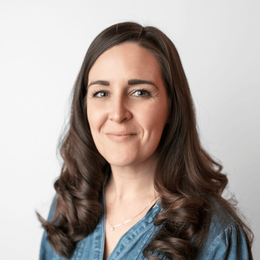
Sarah Cooke
Bridges Outcomes Partnerships

Iciar Ania
Bridges Outcomes Partnerships

Sangita Patel
Substance

Madeline Goldie
Social Finance
Outcomes funds 2.0
Back by popular demand and now officially part of the main programme, these sessions will last 90 minutes, and are designed to connect experts around a specific challenge or question that they can solve (or seek to make progress on) together. With croissants in hand, participants are invited to contribute their expertise and ideas in a relaxed, conversational setting.
This peer-learning session is particularly for those who have been involved in running an outcomes funds. Attendees should come ready to share their experiences and learn from one another.

Andreea Anastasiu
University of Oxford

Can Atacik
Alethina Impact

Stephen Chandler
Education Outcomes Fund
Croissant, Code & Contracts: Using AI Responsibly for Social Outcomes
Join this session if you're looking for fresh ideas (and croissants) on how AI can improve public services without losing public trust. The conversation will touch on using AI to automate cost data classification to support real-time learning, on gaining insights from conversational service user feedback using AI and on the risks of AI in public procurement and how contracting frameworks can support responsible adoption

Paul Atfield
EOF

Damien Ribbans
Transceve / Noise Solution

Saema Jaffer
UK Parliament

Dr Felix-Anselm van Lier
University of Oxford
Chair
Big Picture: Impact economy - the what, the how, and the why
With governments, investors, and communities grappling with how to deliver better outcomes in a time of mounting social, economic, and environmental pressure, the concept of an impact economy is no longer a fringe concept—it's fast becoming a policy and investment imperative. But amidst the buzz, there's still a need for clarity and coherence: What exactly do we mean by the impact economy? How can it be built in practice, not just in theory? And why does it matter now more than ever?
This Big Picture session brings together senior policymakers, sector leaders, and cutting-edge academics to unpack the what, how, and why of the impact economy — from mobilising private capital for public good, to embedding accountability and evidence in decision-making. Featuring senior voices from government, academia, and the frontlines of delivery, expect bold ideas, international perspectives, and a candid conversation about what it takes to shift systems towards impact at scale.
Opening Keynote
We will be joined by Ruth Hannant, Director General for Policy at the Department for Culture, Media and Sport (UK Government) who will give an opening keynote to start the session. Building on the Prime Minister's recent "Delivering Change Together" Summit in July, Ruth will set out how her department is working closely in partnership with the Impact Economy to deliver on the UK government's priority missions.
Find a recording of the event here.

Sooinn Lee
Enuma Inc.

Jessica Reedy
University of Oxford

Michiru Toda
Japan Social Innovation and Investment Foundation

Dr Gorgi Krlev
ESCP Business School

Ruth Hannant
Department for Culture, Media and Sport

Dr Chih Hoong Sin
Independent
Chair
Big Picture: From metrics to meaning - rethinking data infrastructure for adaptive public service
Delivering effective public services in complex environments requires collaboration across government, service providers, intermediaries, and philanthropy. Yet, traditional data systems—built to monitor performance through fixed outcomes and linear theories of change— fall short in capturing some key drivers of impact: trust, relationships, and adaptive local responses.
This panel will explore how we can reimagine data infrastructure to better support test-and-learn approaches in the design and implementation of social programs. We will discuss limitations of existing data infrastructures but also remain pragmatic to what can be done at every level of programs to generate learning from data on complex services.
Find a recording of the event here.

Dr Nevilene Slingers
South African Medical Research Council (SAMRC)

Dr Felix-Anselm van Lier
University of Oxford

Stephen Aldridge CB
Ministry of Housing, Communities and Local Government

Prof Rob Wilson
Manchester Metropolitan University

Dr Mara Airoldi
University of Oxford
Chair
Social impact poster gallery
We recognise that there is so much exciting and meaningful work all of our different speakers and their organisations are doing which can’t be fit into the limited speaking slots.
As such, we are excited to host this opportunity at the Social Outcomes Conference 2025. Speakers and organisations are invited to share posters at the conference which are on display virtually here SOC25 Social Impact Poster Gallery and a selected few physically in the Inamori Forum at the Blavatnik School. This way both online and in-person participants can view the valuable social impact work and research that has been done.
Session documents:
Check out the Posters from the SOC25 Social Impact Poster Gallery!Deep Dive: Scaling Results-Based Financing in maternal health: Lessons from Zimbabwe and South Africa
This session explores how results-based financing (RBF) can be institutionalised and scaled to improve maternal health outcomes in complex, resource-constrained settings. Drawing on two rich case studies—from Zimbabwe’s national rollout of RBF in reproductive, maternal, newborn, child, and adolescent health, to South Africa’s innovative integration of mental health into maternal care pathways in rural Limpopo—the session provides concrete insights into designing, implementing, and sustaining outcome-based approaches. Presenters will share lessons on building local ownership, aligning funding and verification systems, and co-producing outcomes with communities. The session will conclude with a panel discussion featuring implementing partners and policy experts, reflecting on the enabling conditions and challenges for embedding RBF into national health systems.
Find a recording of the event here.
Presentations
The World Bank (WB) introduced Results Based Financing (RBF) in Zimbabwe's Health sector in 2011, with Cordaid Zimbabwe as the Implementing Entity. RBF started with a six-month pilot in two …

Inge Barmentlo
Cordaid

Trish Fadzai Mukunyadzi
Cordaid
Mothers in rural peri-mining communities of Limpopo, South Africa struggle with their mental health. There are high rates of depression, teenage pregnancy and new HIV infections, with many women only …

Stacey Ann Pillay
The Healthy Brains Global Initiative
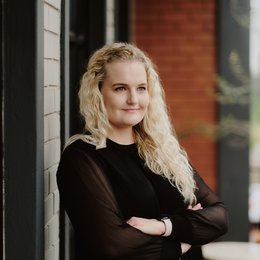
Imke Engelbrecht
Right to Care NPC
A key policy priority worldwide is the development of resilient health systems to withstand future pandemics and other public health emergencies. Identifying policy levers with the potential to build resilience …

Stefanie Tan
University of Toronto
Deep Dive: Where next for international development and humanitarian aid?
Cuts to foreign aid budgets by major donor-countries have thrown development and humanitarian work into crisis. Organisations across the sector face a challenge: using fewer resources to meet the needs of vulnerable populations, all while global fragility remains at a record high. This session will reflect on the future of development and humanitarianism, with particular consideration of highly fragile contexts. We will draw from emerging evidence on alternative strategies and funding models to indicate how partnerships might support better social outcomes in fragile settings. Key themes include: accountability and efficient spending; the role of local organisations; translating investments into long-term sustainability of impact.
Find a recording of the event here.

Jemima Hodkinson
FCDO

Dr Harry Bregazzi
University of Oxford
Chair
Presentations
This paper explores the application of outcomes-based financing in fragile and conflict-affected regions, using Palestine as a case study. Specifically, it examines the first Development Impact Bond (DIB) implemented in …

Marcelo Marzouka
Sunbird Finance & Invest Palestine: Impact Advisors
The Syrian civil war, which began in 2011, generated the world's largest refugee crisis since the Second World War, with Jordan eventually hosting more than 600,000 Syrian refugees. The protracted …

Dr. Evan Borkum
Mathematica
Strengthening local capacity in fragile and conflict-affected contexts is central to the sustainability of interventions aimed at preventing violent extremism (PVE). Local capacity strengthening is not only complementary but integral …
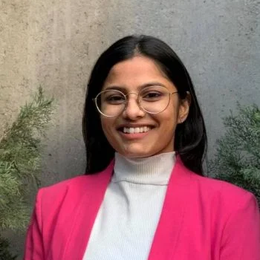
Samhita Ayaluri
Global Community Engagement and Resilience Fund (GCERF)
Deep Dive: Building Blocks – Data and Outcomes in Education Systems
Innovative financing and strategic data use are reshaping the future of foundational learning and education. This deep dive convenes system‑builders from India, South Africa and Latin America to show how an outcomes focus powered by smart data and adaptive evaluation can move the needle at scale. Leading practitioners, researchers and funders will unpack how systems can move from intent to impact. Drawing on experience from diverse contexts, our panel will explore contracts and funding models that tie payments to measurable outcomes while keeping equity and quality at the centre. How can we turn data into decisions and streamline the flood of classroom and system‑level information? How can we evaluate complex change with new flexible and responsive frameworks?
The panel will surface what it takes to unlock political will, design contracts that reward results, embed data in everyday decisions, and scale interventions without losing sight of context. Participants will benefit from sharp lessons, candid reflection and practical take‑aways for anyone committed to better foundational learning, whether you write policy, finance programmes or work on the front line of education outcomes.
Find a recording of the event here.

Dr Rachel Hinton
FCDO

Dr Mara Airoldi
University of Oxford
Chair
Presentations
While outcomes-based financing (OBF) has gained traction in education over the past decade, there have been limited OBF programmes in early childhood care and education (ECCE).
In 2025-26, the Education …

Louise Albertyn
EOF
In states like Uttar Pradesh, India, millions of data points are collected daily, tracking everything from classroom instruction to district-level learning outcomes. As part of India's national NIPUN Bharat Mission, …

Dr Dhir Jhingran
LLF
Strengthening education systems, particularly in contexts of partial decentralization and persistent low-quality results, presents a complex challenge. This presentation explores an innovative ex-post evaluation of the Dominican Republic's education system, …

Maria Florencia Guerzovich
Grupo Politeria
Deep Dive: Reimagining employment support through outcomes-based employment initiatives and relational practice
How can employment services better support those furthest from the labour market into stable, welfare-enhancing and sustainable work? This session brings together diverse international case studies – from England, Australia, and South Africa – that challenge the conventional placement-driven systems and instead spotlight more relational, person-centred and capability-enhancing models of employment support.
Presentations will explore how local partnerships are embedding systems thinking and co-production into youth employment initiatives; how pay-for-performance and outcomes funds are fostering innovation and better coordination between government, training providers, and employers; and how flexible, personalised support models can deliver improved labour market outcomes for disadvantaged groups.
Together, these examples show how employment interventions that focus not just on rapid job placement but on wellbeing, confidence, and longer-term job sustainability can more effectively meet the complex needs of individuals. The session will also share new quantitative evidence on what works, highlighting the potential of outcomes-based funding mechanisms to deliver better results, both for service users and for improving value for money in public service delivery.
Find a recording of the event here.

Professor Mark Considine
University of Melbourne

Dr Eleanor Carter
University of Oxford
Chair
Presentations
Welfare-to-work programmes in Australia have for a long-time been structured around a 'work-first' activation model delivered by networks of organisations competing for clients, government contracts, and market share. For over …

Dr Michael McGann
University of Melbourne
Rates of youth unemployment across sub-Sharan Africa range from high single digits to above 50%. Despite often-significant spending on schooling and post-school skills and training by governments, research is showing …

Dr Stuart Theobald
Krutham
The Life Chances Fund (LCF) is the UK’s largest outcomes fund (£70m), launched by the Department for Culture, Media and Sport to address complex social problems through locally commissioned Social …

Dr Elaine De Gruyter
University of Oxford

Maria Patouna
University of Oxford
Almost one-in-eight young people in the UK aged 16 to 24 are not in education, employment, or training. As of May 2025, the figure stood at 923,000 (ONS, 2025), with …

Tanyah Hameed
Social Finance
Big Picture: Contracting for Public Value
Delivering public value—what is good for and valued by the public—is the ultimate goal of cross-sector partnerships involving government. However, public value is no one thing – it is complex and multi-faceted. Different public values must be weighed up against one another, and public servants must take decisions as to which are the most important amidst competing interests, financial constraints and fast-moving, complex projects. In this session, we’ll explore what public value is, how different dimensions of public value emerge in different policy domains, and ultimately, how public-private partnerships can effectively deliver public value in complex projects.
We’ll explore a wide conception of public value, including the need to be efficient at a time of constrained public finances, and the need to take a whole-society approach to defence, as emphasised by the war in Ukraine, as a very minimal requirement for the security necessary to deliver other social outcomes. How do we prioritise among these different objectives, both as a society, and on the ground in particular projects, particular when the pathways to our overarching goals are unclear and difficult to measure?
We’ll then dig into the challenges of governing this delivery of public value in the context of cross-sector partnerships, where public, private and third sector organisations need to be brought together under a shared sense of public value. How do we align different incentives and institutional logics in order to capitalise on the unique assets different parties bring to the delivery of public value?
Find a recording of the event here.

Professor David Van Slyke
Maxwell School of Citizenship and Public Affairs, Syracuse University

Stephen Muers
Better Society Capital

Michael Gibson
University of Oxford
Chair
Book launch: Contracting for Public Value
In this session, over drinks in the Inamori Forum, we’ll discuss insights from a new book comparing insights from cases in the UK and US on striking the balance between the formal and relational elements of contracts in social services.
Find a recording of the event here.

Professor Carolyn Heinrich
Vanderbilt University

Deanna Malatesta
Indiana University

Dr Eleanor Carter
University of Oxford

Michael Gibson
University of Oxford

Nigel Ball
Social Purpose Lab

Pepper Culpepper
University of Oxford
Chair
SOC25 Closing celebration gala & remarks
A celebratory ending and closing remarks with moments of community, insights, and connection. Join us for drinks, nibbles, music, and reflections for this final celebration in our beautiful venue.
Enter access code
Submit the event access code to reveal the session/meeting credentials.
